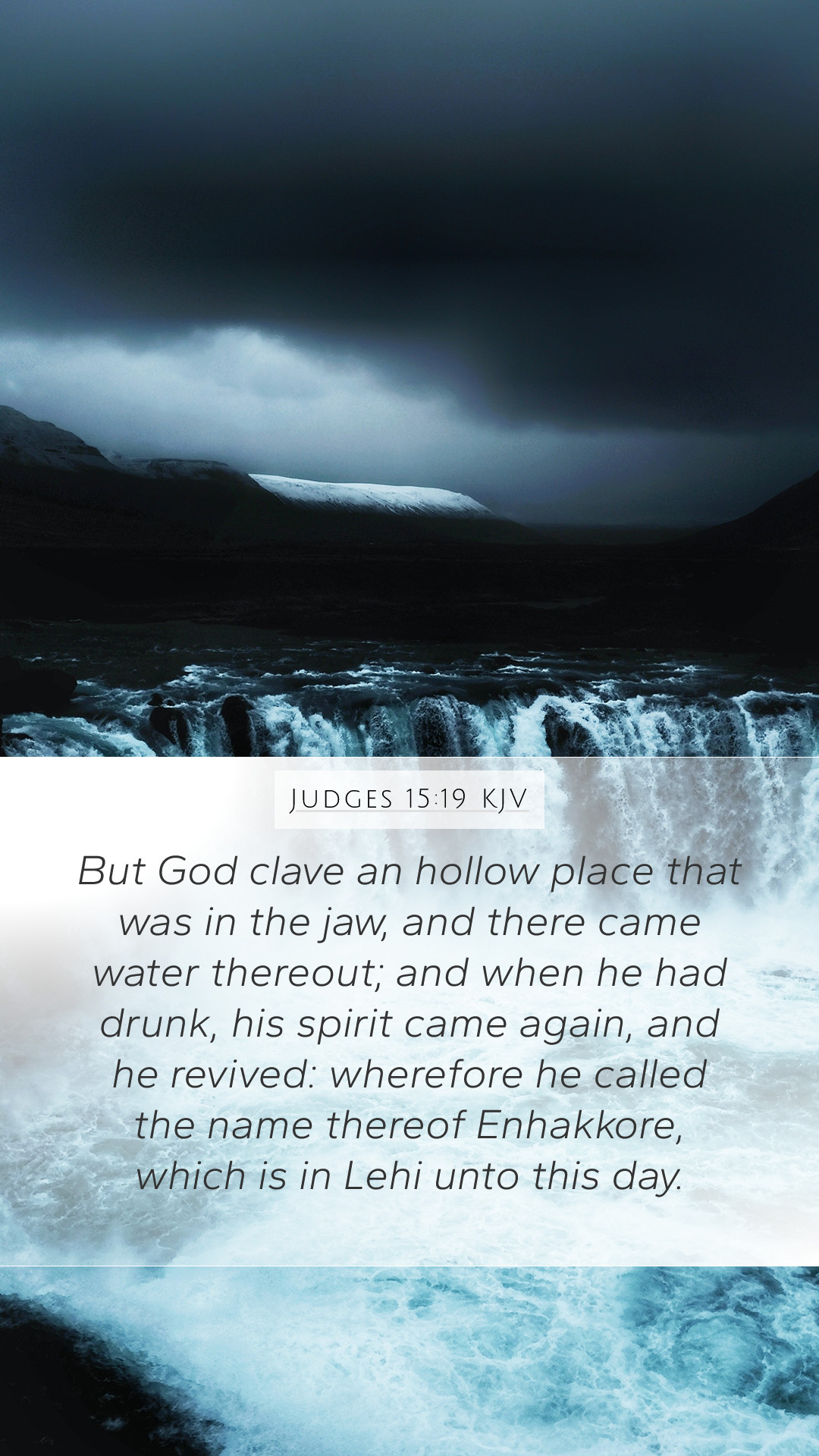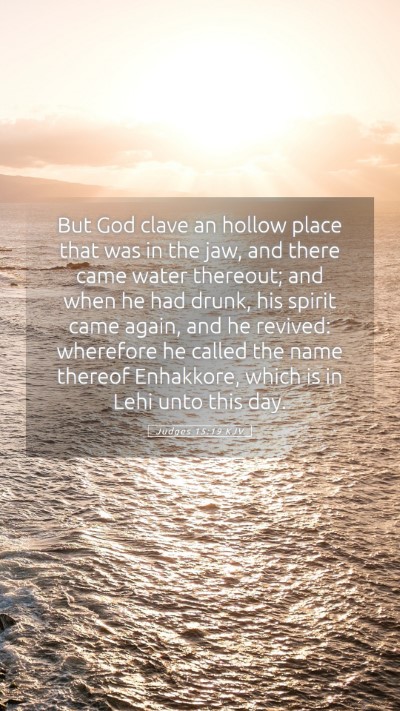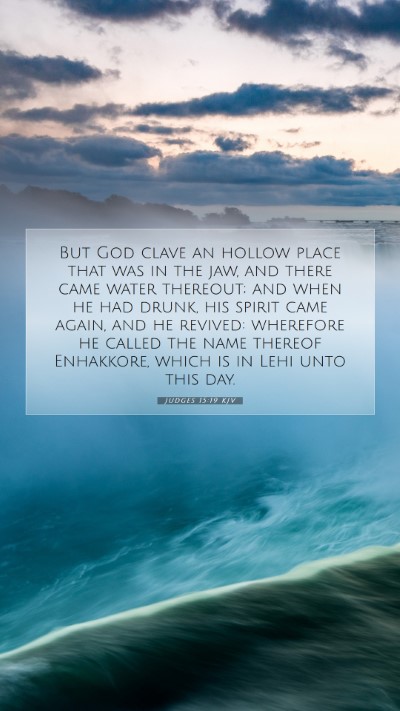Old Testament
Genesis Exodus Leviticus Numbers Deuteronomy Joshua Judges Ruth 1 Samuel 2 Samuel 1 Kings 2 Kings 1 Chronicles 2 Chronicles Ezra Nehemiah Esther Job Psalms Proverbs Ecclesiastes Song of Solomon Isaiah Jeremiah Lamentations Ezekiel Daniel Hosea Joel Amos Obadiah Jonah Micah Nahum Habakkuk Zephaniah Haggai Zechariah MalachiJudges 15:19 Meaning
What is the meaning of Judges 15:19?
But God clave an hollow place that was in the jaw, and there came water thereout; and when he had drunk, his spirit came again, and he revived: wherefore he called the name thereof Enhakkore, which is in Lehi unto this day.
Judges 15:19 Bible Verse Meaning
Bible Verse Commentary on Judges 15:19
Judges 15:19 states: "But God clave an hollow place that was in the jaw, and there came water thereout; and when he had drunk, his spirit came again, and he revived: wherefore he called the name thereof Enhakkore, which is in Lehi unto this day." This verse reveals divine intervention in a time of serious need.
Meaning and Explanation
This verse offers profound insights into the themes of dependence on God and the miracle of sustenance during trials. It highlights God's providence in our lives, especially when we feel utterly drained.
Key Themes
- Divine Providence: God’s ability to provide for His people in ways that surpass natural expectations is underscored in this passage. The water that sprang from the jawbone demonstrates that even in seemingly barren circumstances, God can supply our needs.
- Spiritual Revitalization: The story emphasizes that physical needs often reflect spiritual needs. Samson’s revival after drinking the water symbolizes rejuvenation of spirit that comes from the Lord.
- Importance of Naming: The act of naming the place 'Enhakkore,' which means "the spring of the caller," signifies recognition of God’s provision and serves as a reminder for future generations of His faithfulness.
- Context of Desperation: This event follows Samson’s previous exploits, where he faces significant trials. His cry to God in his moment of despair exemplifies a critical lesson on turning to God in troubling times.
Public Domain Commentary Insights
Matthew Henry emphasizes that this miracle was intended to display God’s care for Samson, despite his previous actions. He notes that this event illustrates how the divine intervenes to meet physical and spiritual needs, making it clear that God is attentive to our cries for help.
Albert Barnes' Perspective
Albert Barnes provides commentary on the significance of water in biblical literature, linking it to life and spiritual refreshment. He points out that the miraculous nature of water emerging from a jawbone solidifies the idea that God can draw nourishment out of unlikely places, reinforcing the importance of faith in His provisions.
Adam Clarke's Analysis
Adam Clarke delves into the geographical context, explaining the significance of Lehi and its history in Israelite narratives. He also highlights that the oath of God’s servant and his cry for help were met with immediate divine response, showcasing a very personal aspect of God’s relationship with His people.
Application and Relevance
For believers today, Judges 15:19 serves as a potent reminder of God's faithfulness. In moments of distress, recalling the miraculous sustenance provided to Samson encourages individuals to seek God earnestly for their needs. This verse can guide discussions in bible study groups or online bible study settings, serving as an illustration of God's omnipotence and care.
Cross References
- Psalms 107:35: "He turneth the wilderness into a standing water, and dry ground into watersprings." - Using similar imagery of divine provision.
- Isaiah 41:17: "When the poor and needy seek water, and there is none, and their tongue faileth for thirst, I the Lord will hear them." - Affirms God’s attentiveness to those in need.
- Exodus 17:6: "Behold, I will stand before thee there upon the rock in Horeb; and thou shalt smite the rock, and there shall come water out of it, that the people may drink." - Another instance of God providing water in desperate circumstances.
Conclusion
Judges 15:19 encapsulates several critical elements of Bible verse understanding. Through scripture analysis, we learn that physical sustenance mirrors our spiritual needs and that God responds to His people's cries. Such passages can be invaluable in bible study lessons as they provide rich insights for personal reflection and community learning.


